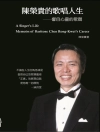In his monumental biography, ‘Ludwig van Beethoven, ‘ Alexander Wheelock Thayer meticulously chronicles the life and work of one of classical music’s most renowned composers. Spanning three comprehensive volumes, Thayer employs a rigorous scholarly approach, intertwining detailed historical context with an analytical examination of Beethoven’s compositions, influence, and the societal changes of his time. The biography is characterized by Thayer’s eloquent prose and incorporation of extensive primary sources, including letters, contemporaneous accounts, and musical critiques, which unfold the complexities of Beethoven’s character and creative process. Alexander Wheelock Thayer, an American musicologist and one of the earliest biographers of Beethoven, was profoundly influenced by the Romantic ideals that surrounded him. His academic background and pioneering spirit culminated in a work that not only reflects thorough research but also a deep appreciation for Beethoven’s music. Thayer’s dedication to capturing the essence of Beethoven’s life stemmed from his own passion for the arts and music, coupled with an ambition to provide a definitive account of the composer who shaped Western music. This biography is a must-read for anyone interested in the intersection of music and biography. Thayer’s incisive analysis and rich narrative will appeal to musicologists, historians, and general readers alike, offering an unparalleled glimpse into the life of a genius whose powerful legacy continues to resonate through the ages.
Over de auteur
Alexander Wheelock Thayer (1817-1897) stands as an eminent figure in the realm of musicology, most notably for his exhaustive and scholarly biography of the illustrious composer Ludwig van Beethoven. Born in Massachusetts, Thayer was not just an acclaimed historian; he served as an American diplomat in Trieste, Italy, balancing his professional duties with his passionate engagement in historical research. His magnum opus, the ‘Life of Ludwig van Beethoven, ‘ originally published in three volumes between 1866 and 1879, has been widely esteemed for its meticulousness and depth of inquiry into the composer’s life and character. Thayer’s biographical work significantly shaped the study of Beethoven, establishing a benchmark for meticulous archival research and combining a commitment to factual accuracy with an engaging narrative style. His biography was a product of years of tireless research, including examinations of primary sources and correspondence, looking beyond the myths that commonly surrounded Beethoven’s persona. It is a testimony to Thayer’s dedication that subsequent biographers continued to revise and complete his work posthumously, maintaining its status as a cardinal reference for Beethoven scholarship. Thayer’s literary style resonates with the investigative spirit of the 19th-century historiography, embracing the positivist belief in the capacity of rigorous historical method to uncover the ‘objective’ truths of Beethoven’s life.












